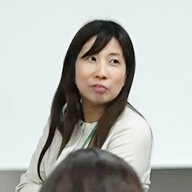Faculty
Brain Science Institute consists of faculty members and research members of various colleges and research institutes in Tamagawa University. This page introduces the full-time staff members of Brain Science Institute.
Full-time Faculty
Masamichi Sakagami Professor, Ph.D
Neuroscience / Experimental Psychology
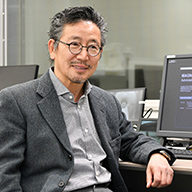
I am conducting research investigating the basic neural mechanism of decision-making and thinking by combining experimental psychology and neuroscientific methods. My experimental methodology is the use of neuron activity records and functional brain imaging (i.e., fMRI). In addition, I am discussing and carrying out collaborative research with economists and philosophers on how basic brain functions related to decision-making may be linked with complicated social brain functions (i.e., neuroeconomics and neuroethics).
Kenji Matsumoto Professor, Ph.D
Cognitive Brain Science / Neuroeconomics / Systems Neuroscience
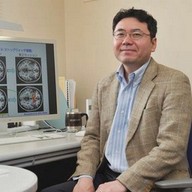
My challenge is to clarify the neural mechanisms of human agency from the view of goal-directed behavior, value representation, and motivation, by combining functional brain imaging with educational and social psychological methodologies. Some of my groundbreaking findings are highly regarded internationally.
Yutaka Sakai Professor, Ph.D
Computational Theory / Computational Psychology / Theory of Neural Computation

The brain is an excellent learning machine. Animals can learn appropriate behavior for various situations, although they have never experienced completely identical situation in their life. It implies that the brains can extract significant information for selection of behavior from huge sensory and stored information. The current computers can not yet do such excellent extraction of information. In order to clarify how animals can do, I am exploring the mechanisms of strange phenomena observed in brain and behavior of animals, from a view point of physics. I am tackling the unexplored topic of constructing a theoretical framework for learning mechanism of animals linking from neural systems to behavior.
Kazuyuki Samejima Professor, Ph.D
Computational Neuroscience / Cognitive Neuroscience
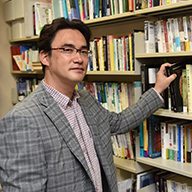
My research goal is to know the nature of the intelligence from a theoretical point of view combined with neurophysiological methods in order to investigate brain functions. How are our behavioral choices optimized, and what do neural mechanisms contribute to the process? How do we explore actions, including behavioral repertoires, in novel environments? My approach for the research is to construct a mathematical model from an information-processing perspective in order to elucidate the neural mechanisms that create intelligence, by measuring neural activity during behaving animals and comparing it with computational models.
Tetsuya Matsuda Professor, Ph.D
Cognitive Neuroscience / Social Neuroscience / Psychiatric Neuroscience
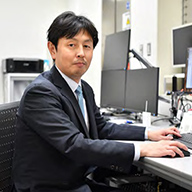
I am conducting research related to the neural mechanisms of social decision-making using functional brain imaging, as well as psychological and physiological methodologies. First, I examine these mechanisms with basic neuroscience; then I take an approach that connects these findings with clinical research. In my clinical research, I investigate the relationship between the pathology of mental disorders and social decision-making impairment.
Haruto Takagishi Professor, Ph.D
Social Psychology / Developmental Psychology / Social Neuroscience
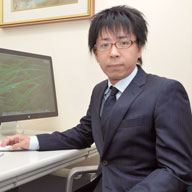
I am conducting research to clarify the psychological / neural basis of social behavior through experiments that combine economic games and functional brain imaging. I am also investigating the effect theory of mind have had on the development of altruistic behavior and sense of fairness via developmental psychology experiments with preschoolers and elementary school students.
Yasuhiro Tanaka Professor, M.D, Ph.D.
Neuroscience / Data Science

Recently, several techniques are developed to record massively multiple neuronal populations. The activity dynamics of these neuronal populations are highly multidimensional. We are attempting to obtain such neuronal population activity with silicon probes or imaging techniques and clarify properties of the activity dynamics by utilizing deep learning and other artificial-intelligence related techniques. Our goal is to explain the generative process of animal behavior in terms of neuronal dynamics.
Tomohiko Takei Professor, Ph.D
Systems neuroscience / Neurophysiology
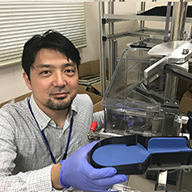
We study the neural mechanisms of adaptive motor control of animals and its dysfunction. Our approach is multidisciplinary, including i) a large-scale neural recording, ii) artificial neural network, and iii) computational modelling. By taking advantage of these diverse techniques, we aim to bridge the levels of hardware (circuits), algorithm (networks) and computation (theories) of motor control, perception and decision making.
Tetsu Okumura Professor, D.D.S, Ph.D.
Neuroethology / in charge of liaison work (Industry-government-academia collaboration and Neuroscience Education for K-12)
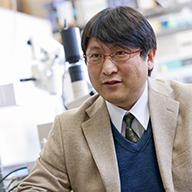
I have been using neurophysiological and neuroanatomical methods to elucidate the brain mechanisms underlying complex animal behaviors, such as the singing behavior of songbirds, etc. At Tamagawa University, where I arrived in 2022, I am conducting research on brain science education and social implementation of brain science in collaboration with K-12 and other organizations.
Yumiko Muto Associate Professor, Ph.D
Human Computer Interaction/ Data Science Education / AI literacy Education
Tetsunari Inamura Professor, Ph.D
Cognitive Robotics / Cognitive Science / Kansei Engineering

I explore methodologies to enrich daily life by fostering appropriate collaboration between humans and robots. Recognizing that robots and humans have strengths and weaknesses, I focus on the importance of not over-relying on robots for tasks where users should maintain agency and improve their skills. Instead, I emphasize the need for robots that assist without over-assisting—finding the right balance in support. Moreover, I advocate for collaborative systems where humans can aid robots in tasks that are challenging for robots. Utilizing digital twin and VR technology, our research lab develops theories on the design of human-robot collaboration, adjusted to fit these scenarios. This approach not only advances our understanding of effective teamwork between humans and robots but also aims to create a more harmonious living environment where both parties can thrive.


